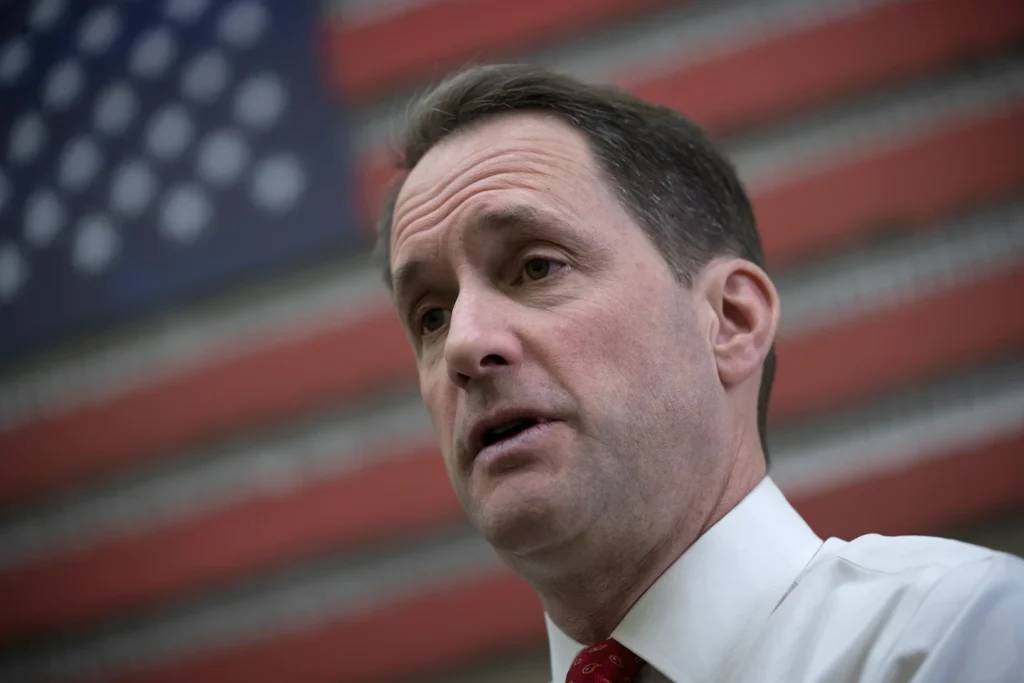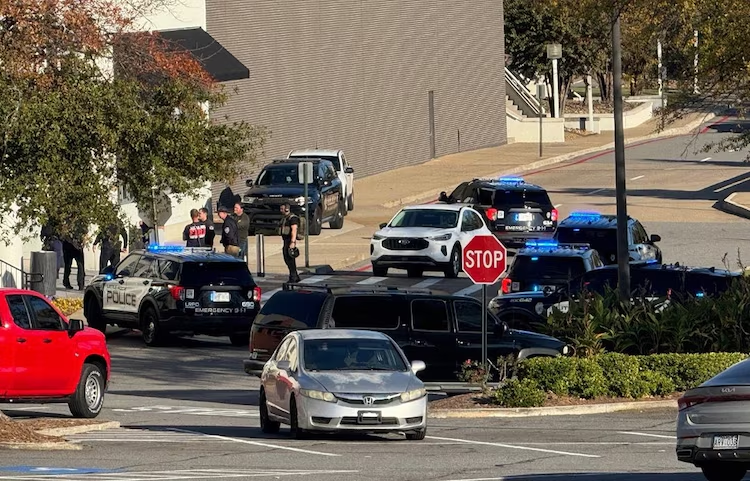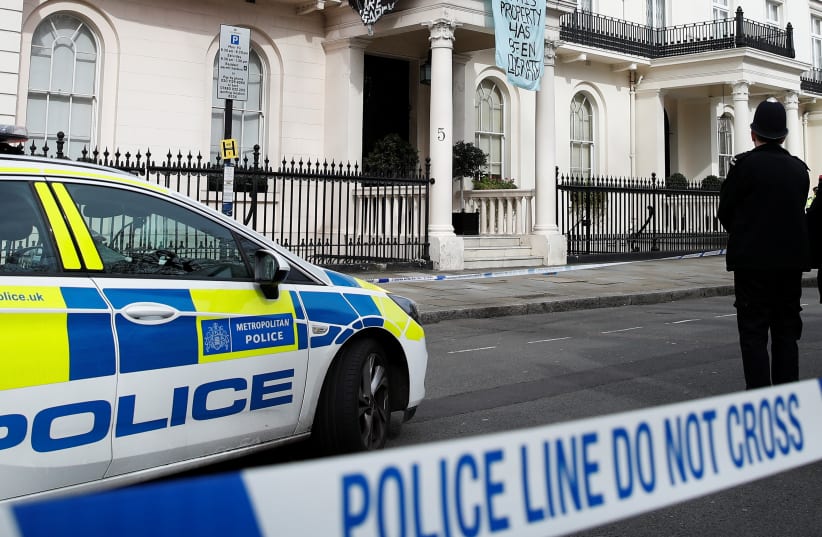Democratic Lawmakers from Connecticut Report Thanksgiving Bomb Threats Against Their Homes

In a chilling turn of events, Democratic lawmakers from Connecticut reported receiving bomb threats targeting their homes during the Thanksgiving holiday weekend. The threats, which were made against several members of the Connecticut state legislature, have raised concerns about the growing climate of political violence and harassment facing public officials. The bomb threats come amid a backdrop of heightened political tensions and the ongoing division over key policy issues in the state and the country at large.
The Threats and Response
The bomb threats were reported to law enforcement on the night of Thanksgiving, with state police and local authorities swiftly responding to the situation. The lawmakers, who had been spending the holiday with their families, were understandably shaken by the nature of the threats and the timing of the attacks.
Authorities quickly launched an investigation into the threats and implemented safety measures to protect the lawmakers and their families. Bomb squads were deployed to investigate the residences, while police worked to determine the source of the threats and to track down any individuals responsible.
In a statement following the threats, Connecticut’s Governor Ned Lamont expressed his deep concern and condemnation of the incident. “Threatening public servants with violence, especially over the holidays, is an attack on our democracy and cannot be tolerated,” Lamont said. “We will do everything in our power to ensure that those responsible for this cowardly act are held accountable.”
The Connecticut Democratic lawmakers who received the threats have also condemned the act. Several took to social media to express their gratitude for the swift response of law enforcement but also to raise awareness about the growing threat of political violence in the U.S. “This is not the first time elected officials have been targeted, but it remains deeply unsettling,” one lawmaker said. “I refuse to let this deter me from doing the work that my constituents sent me to Hartford to do.”
The Rising Threat of Political Violence
The bomb threats against the Connecticut lawmakers are a stark reminder of the growing risks facing public figures in today’s polarized political environment. In recent years, there has been a noticeable increase in threats, harassment, and acts of violence directed at politicians, particularly those in the Democratic Party.
This troubling trend has been fueled by a variety of factors, including the rise of political extremism, the weaponization of social media, and the deepening divisions between political parties. In the case of the Connecticut lawmakers, the threats appear to be linked to their political affiliation, as many have been vocal critics of policies promoted by more conservative factions in both state and national politics.
Experts have warned that this kind of political violence poses a significant threat to the functioning of democracy. The intimidation of elected officials can undermine public trust in government institutions and discourage individuals from running for office or engaging in public service. It can also breed a culture of fear that stifles open debate and dialogue in the political process.
Historical Context and Similar Threats
The bomb threats against the Connecticut lawmakers are part of a broader pattern of political violence targeting public officials. In recent years, high-profile politicians in both the U.S. and abroad have been subject to threats ranging from harassment and doxxing to assassination attempts.
For example, members of Congress have faced physical threats, particularly following high-profile events like the January 6th Capitol insurrection. Since then, there has been an uptick in violent rhetoric and threats aimed at both Republican and Democratic lawmakers, contributing to a sense of insecurity among elected officials.
In Connecticut, these bomb threats come on the heels of several similar incidents targeting political figures in other states. In 2021, for instance, threats were made against members of Congress over their votes on contentious issues such as voting rights and infrastructure. These incidents have underscored the risks posed by online extremism and the increasing use of violent rhetoric by certain political factions.
Addressing the Threat and Ensuring Safety
In the wake of the Connecticut bomb threats, lawmakers and law enforcement officials have emphasized the importance of protecting public servants and ensuring their safety. While authorities continue to investigate the source of the threats, there has been a growing call for stronger security measures for public officials at all levels of government.
One potential solution involves increasing funding for protective services for lawmakers, particularly those who have been targeted or who serve in high-risk districts. Many have suggested that law enforcement agencies should be more proactive in addressing potential threats before they escalate to violence. Additionally, there is a push for enhanced screening and monitoring of online activity, as many threats are now made through social media platforms or encrypted messaging apps.
The role of social media companies in combating online harassment and extremism has also been brought into focus. Some lawmakers and advocacy groups are calling for stricter regulations on the spread of violent rhetoric and the platforms that allow it to proliferate. While some social media platforms have made strides in curbing hate speech and violent content, critics argue that more needs to be done to prevent the radicalization of individuals who may turn to violence as a means of expressing their political grievances.
The Broader Implications of Political Violence
The bomb threats against Connecticut’s Democratic lawmakers highlight the broader challenges facing the United States in terms of political discourse, public safety, and trust in government. While the threats made against these officials were ultimately unsubstantiated, the psychological toll of such incidents can have lasting effects. When public servants are threatened with violence, it erodes the trust between elected officials and the citizens they serve.
Moreover, political violence also threatens the integrity of democratic institutions. When elected officials feel unsafe or fear for their lives, it can lead to self-censorship, corruption, or a breakdown in governance. The fear of retribution can deter public servants from speaking out on controversial issues, thus diminishing the quality of public debate and policymaking.
A Call for Unity and Security
In response to these growing threats, leaders on both sides of the political aisle have called for unity and increased efforts to ensure the safety of public figures. Governor Lamont’s statement underscored the importance of fighting against political violence in all its forms, while also calling for greater support for those working to keep the public safe.
As the investigation into the Thanksgiving bomb threats continues, the hope is that the perpetrators will be swiftly brought to justice and that measures will be put in place to prevent such incidents in the future. For now, the Connecticut lawmakers, along with the broader public, will have to grapple with the reality that political violence—whether through threats or actual acts—is an ever-present danger for those serving in the public sphere.
While this incident may have been a wake-up call, it also serves as a reminder of the importance of safeguarding democracy and ensuring that elected officials can do their work without fear of harm. The community must come together to reject political violence in all its forms and work toward a more secure and respectful political environment.






